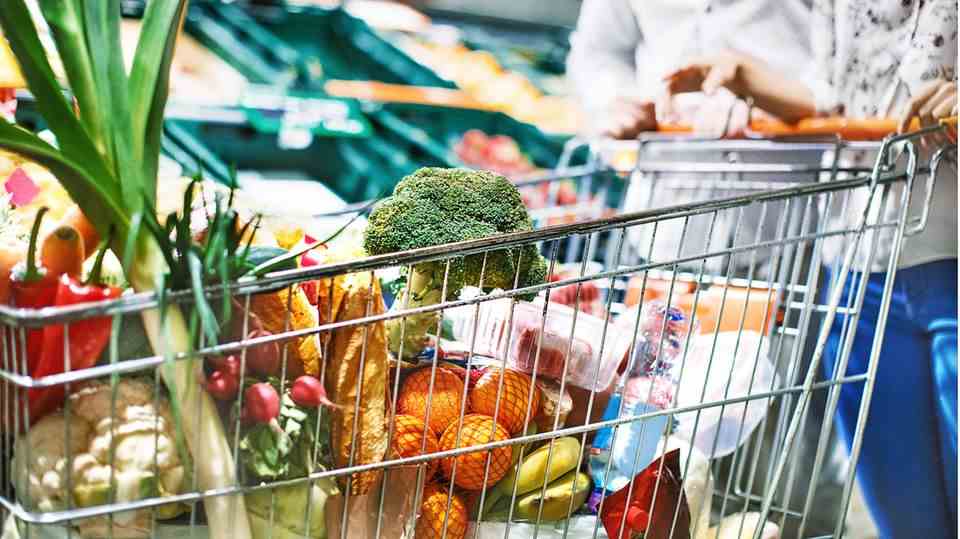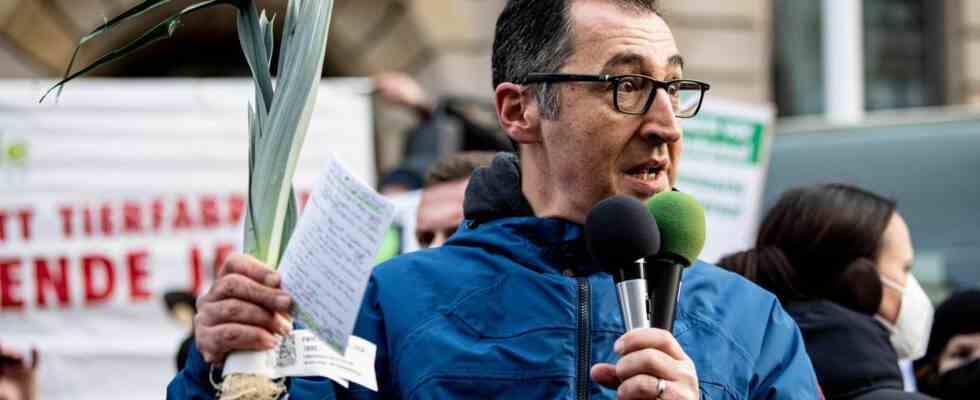tax relief
Minister of Agriculture Özdemir wants to abolish VAT on fruit and vegetables
“If we make fruit and vegetables cheaper, we also promote healthy nutrition through the steering effect we gain,” says Cem Özdemir
© Fabian Sommer/ / Picture Alliance
Consumer associations are calling on the federal government to exempt foods such as fruit and vegetables from VAT. While Federal Minister of Agriculture Cem Özdemir supports the demand, the FDP expresses criticism.
High inflation rates, the corona pandemic, the Ukraine war – all of this has sometimes led to the fact that food prices in Germany are currently rising sharply. In order to relieve the burden on low-income households in particular, social and consumer associations are calling on the federal government to use new EU regulations and certain products such asTotal tax exemption for fruit and vegetables.
“If we make fruit and vegetables cheaper, we not only relieve the burden on consumers comparatively inexpensively, but also promote healthy nutrition through the steering effect gained,” said Federal Minister of Agriculture Cem Özdemir on Thursday of the German Press Agency. “That would be a double dividend proposal, which is how I prefer it.” At the same time, Özdemir points out that the Ministry of Finance is responsible for examining and implementing possible VAT changes.
New EU directive allows tax exemption for food
Verena Bentele, president of the VdK social association, says low-income earners, pensioners and those on basic social security no longer know how to pay for groceries or their electricity bills. “The VdK is therefore calling for a drastic reduction in VAT on staple foods, to zero percent.”
With this, Bentele is alluding to an EU value-added tax system directive that was changed two weeks ago and sets common requirements for the EU member states: According to this, the regular tax rate must be at least 15 percent and the reduced rate must be at least 5 percent. However, complete tax exemptions are possible in certain areas – and since the change, this also applies to food and other goods to cover basic needs.
The regular VAT rate in Germany is 19 percent. The reduced rate of 7 percent subsidizes products that serve the common good, such as staple foods such as milk, meat or baked goods.
Dürr: Traffic light relief packages “make more sense than a patchwork quilt on VAT”
Opinions on the potential VAT reduction differ among the parties in the Bundestag. FDP parliamentary group leader Christian Dürr criticizes in the “Neue Osnabrücker Zeitung” that such a tax cut is not a measure that specifically relieves people with low incomes. “Even the reduced VAT rate during the pandemic hardly made itself felt in the wallet,” says Dürr.
Instead of a reduction in VAT, Dürr is in favor of the two relief packages decided by the traffic light coalition, which are intended to cushion the increased costs for citizens. Those packages contained measures “for families and households that are having a particularly difficult time,” he says. “It definitely makes more sense than a patchwork quilt for VAT.”
Fresh vegetables around 15 percent more expensive than last year
On the other hand, Left Party leader Dietmar Bartsch sees a temporary suspension of VAT on staple foods as a quick-acting measure. “Something like that is needed now,” he told the Tagesspiegel. “However, we need a whole bundle of further measures.” Even the traffic light relief package is not enough.
Life in Germany has skyrocketed in price since the beginning of the Ukraine war, and there is no relief in consumer prices in sight for the time being. Energy and food are becoming increasingly expensive. According to the Federal Statistical Office, food cost 6.2 percent more in March than a year earlier. In particular, edible fats and oils (up 17.2 percent) and fresh vegetables (up 14.8 percent) became more expensive.

Release of agricultural land as an alternative to tax exemption
Approaching VAT could support people with low incomes in particular – since they spend a larger part of their monthly income on food than people with high incomes, as the German Institute for Economic Research (DIW) explained. DIW President Marcel Fratzscher told the “Augsburger Allgemeine”: “The federal government should temporarily abolish the reduced VAT rate of seven percent, as this would make food and other basic services cheaper and help people quickly and unbureaucratically.”
The Vice President of the Kiel Institute for the World Economy, Stefan Kooths, sees no solution in this. Rising prices reflect greater shortages that the state cannot eliminate, he told the Rheinische Post. “If the state wants to do something effectively against higher food prices, then it should think about freeing up agricultural land.”



